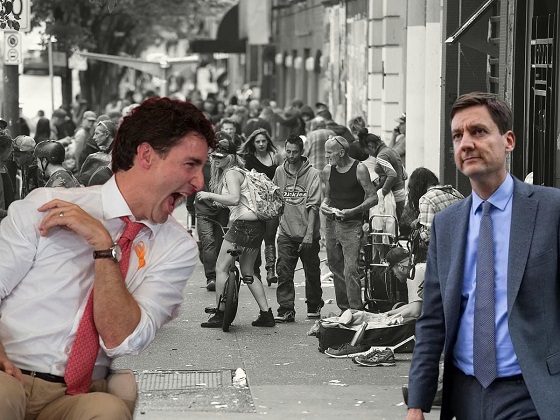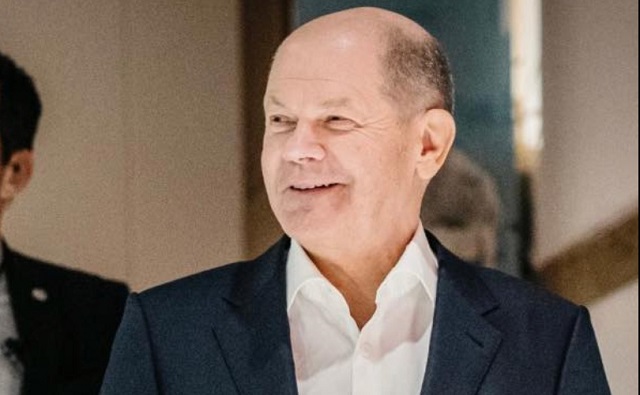Brownstone Institute
Jordan Peterson: Enemy of the State
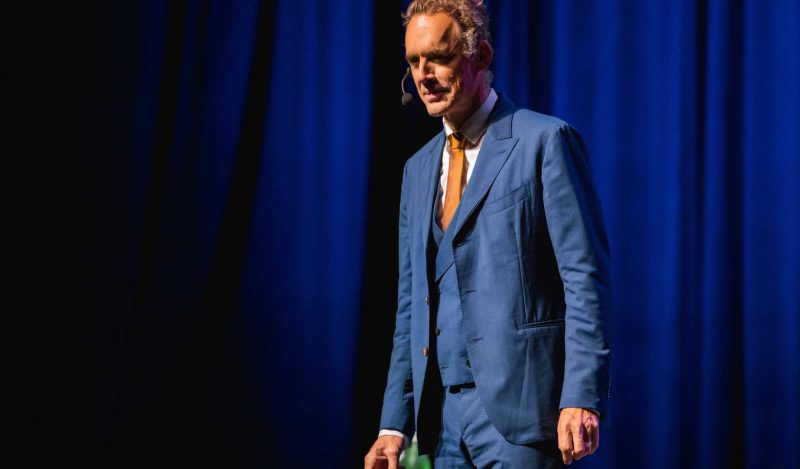
From the Brownstone Institute
BY
The famed psychologist and scholar, and global media personality, Jordan Peterson is being told that he must report to the Ontario College of Psychologists for re-education or else lose his license to practice. He is challenging the order in court, for whatever that’s worth.
No question that this follows his aggressive questioning of the whole of the Covidian agenda, including mass forced vaccination of the population.
It’s hardly the first time he has gotten in trouble with the powers that be. His initial fame came from his brave refusal to acquiesce to the “preferred pronoun” movement in Canada that came before lockdowns. That he is now ensnared in the machinery of the biomedical security state is predictable; this is today’s means by which regime enemies are punished and silenced.
It so happens that I heard Jordan speak in Budapest only months before the lockdowns that coincided with his own grave problem that he encountered with prescription medicine: as with many he was misled about what he believed was a simple medication. The timing was a tragedy because it took him out of the space of public intellectual life right when we needed him most: during the early months of lockdowns.
His voice went silent during these times. It was heartbreaking. The very small resistance continued despite his incapacitation. Once he got better, he gradually became aware of what had taken place and then became ferocious, as any thinking person must. Thus his current issues with the authorities.
Looking back at this date, it seems almost like he saw what was coming. In those months before lockdowns, I wrote the following report on what I saw in Budapest.
* * * * *
Almost from the first words of his outdoor lecture in Budapest, Hungary, held in the courtyard of the St. Stephen’s Basilica, Jordan Peterson’s eyes teared up and his voice cracked with emotion. Not just once. It happened repeatedly. His eyes never entirely dried. The audience could see it all because of the cameras and the huge monitors that made him some 25 times life-size, which is pretty apropos to his status as an intellectual in this part of the world. Indeed, in most parts of the world.
Tonight was interesting, however, because his tears were clearly not performative in any sense. It was a show of extreme vulnerability that he surely hoped that he would not show. He strikes me as a deeply emotional person – a temperamental cryer – who has probably practiced a lifetime to stop this.
It didn’t work this time. Before long, during his impassioned presentation on behalf of the dignity of every individual and the responsibility of living a life of truth, audience members too were tearing up in the midst of the awesome silence that fell over this massive crowd during the hour-long presentation.
He never quite got around to explaining his emotion. I think I can, however. So here is my go at it.
The first issue had to do with his introduction in this hugely dramatic space, which was filled with flares and fanfare and oceans of love from those who gathered, not just people with tickets (which were hard to get) but an equal number behind the barricades, extending as far back as one could see. It was impossible not to view this as a show of incredible affection for the man, his work, his influence, his personal courage, and his message. The crowds and the anticipation were overwhelming.
Now, if you are Peterson, you would have to contrast this scene with the raging nonsense you will read about yourself in the mainstream press, to say nothing of the academic literature along with various left-wing hit sites out there who routinely twist anyone’s words to confirm their wild narratives. His every word is picked apart, his footnotes followed, his analogies deconstructed in an unending game of gotcha in order to put him into some kind of predefined political category for easy dismissal.
For the easily led, he is a target. For the witch hunters in media and academia, he is a convenient scapegoat. Within the academy, he is the object of unrelenting envy. In the face of all this, including campus protests and media hectoring, he has been steadfast and brave, refusing to be intimidated and instead using the attention to get his message out there. To cut through all this nonsense, and like and appreciate him in any case, already marks you as being in possession of a discerning mind, a rebel against conventional wisdom. Apparently, there is no shortage of such rebels.
The crowds – I don’t have an estimate but there were 20,000 people at the Brain Bar event at which he was a main draw – might have seemed to him as a tribute to the resiliency of the human spirit. That people were there at all, seeking not a confirmation of political bias but rather to gain a greater sense of personal purpose, shows that the powerful in this world cannot finally rule the day.
He is just one man with a message against the world’s most powerful voices in media, academia, and government – and yet through ideas alone, beginning as nothing but one man in a classroom, he has become the world’s most influential public intellectual.
As for his emotion this night, Jordan probably felt a deep sense of gratitude for being the recipient of this affection and for his place in inspiring people to become intellectual dissidents. That is enough to cause tears of gratitude.
There is far more that overwhelms you about being in this remarkable and indescribably beautiful city. The history is deep and rich and present everywhere you look. There is drama within eyesight of anywhere you stand. The Danube river and bridges, the castles, the stunning Parliament building, the churches and universities, all of it, are not dusty old monuments but currently in use amidst a teeming commercial life that is equal parts old and new.
The whole city also feels extremely young, similarly today to what it might have been like in the late 19th century, in the last years of the Belle Époque when Budapest’s cultural and commercial life rivaled Vienna’s. It’s a magical place, as delightful to visit as anywhere on the planet, in my view.
But what you see is only on the surface. The scars of this city are extremely deep, having been put through astonishing traumas of totalitarianism of the left and right, the bombings, the terror and cruelty and poverty – the experience is not that far back in history. It was tyrannized by Soviet occupation twice, first after World War I and then following World War II, between which it experienced Nazi occupation and devastating Allied bombing that destroyed its infrastructure (all of which has since been rebuilt).
And yet you can walk the city and not see this deep suffering overtly. The city, which wears this grim past lightly, is a tribute to the survival of hope in the face of overwhelming forces that sought to destroy it. The city lives. It thrives. It dreams anew.
In addition to being a psychologist, Peterson is also a historian of totalitarianism. There are ways to read history as a dry reportage of events. That is not how he reads history. Good historians recount events. Great historians tell stories as if they lived them. Peterson is next level: he has sought the inner philosophical and psychological turmoil that shape history through the moral choices of both the oppressed and oppressors. He seeks to understand the inner horror from the point of view of human nature.
As he exclaimed in a slightly terrifying moment, he has read about the history of Hungary and totalitarianism “not as a victim, not as a hero, but as a perpetrator.” What he means is that we must come to terms with evil not just as something external to ourselves but as a force deep within the human personality itself – not excluding our own personalities. What character traits do we need to acquire, what values do we need to adopt, that can prepare us to resist when evil invites our participation in violence and terror? He never stops reminding us what we are capable of doing both good and evil, and urges that we steel ourselves to live good lives even when it is not in our political and economic interests to do so.
So here we were in St Stephen’s square outside the great Basilica, packed with young people there to hear his message, in this remarkable city, a tribute to the resiliency of the human personality in the presence of one hundred years of oppression and violence. And yet there we were in this year, an age of hope, everyone given yet another chance to get it right, to live well, to treat others with dignity, to build peace and prosperity yet again.
The look on his face, and tears in his eyes, seem to suggest to himself and others: we can do this. We will not give in to evil. We can be strong. We can learn, build, and achieve. Against all odds, he has emerged as a leading voice to add to the possibility of success in our times.
I’ve heard Peterson live before and, like you, watched many of his speeches and interviews on youtube. I can tell you, I’ve never heard anything like what he said on this evening. It was for the ages.
The latter part of his presentation was lighter, with some very charming “one-minute therapy” sessions on stage with audience members that variously turned profound once again. And here is what is amazing: you discover that the real core of Peterson is not his political outlook or his role as a cultural pundit, historian, or philosopher but his professional training as a psychotherapist, just one man there to help one individual find a way forward through the terrifying struggles of life. Through technology, he finds himself in the blessed role of serving millions of willing readers and listeners.
Even now he can’t possibly know the full impact of his influence. I suspect, for example, that he is unaware of the crucial role he played in American political life when only two years ago, young men were being drawn to the invidious politics of the so-called Alt-right as an alternative to the false moralism of the social-justice left. They were drawn to his brave stances against speech controls, but he knew better than to side with any mob on either side of the extremes. He schooled even his new fans in the evils of every brand of identity politics – and the moral urgency of universal human dignity – and justly earned the wrath of alt-right leadership. Thus did he contribute to saving a generation from perdition in extremely volatile times. For this, he deserves the gratitude of every genuine liberal, but, so far as I know, he has never been publicly credited for this achievement.
“Ego Sum Via Veritas et Vita,” read the sign above the entrance to the Basilica. I am the way, the truth, and the life. The sign reminds us of the universal hunger to find direction, purpose, meaning, and redemption in the midst of the chaos and anomy of the historical narrative.
Peterson is not a religious man but he respects its ethos and contribution. This night he became a preacher of goodness, of civility, of moral strength in the face of struggle. The poetry of it all, and the promise that goodness and decency can prevail, was manifest in the crowds and the city right here, this night, in Budapest. It combined to inspire him to find the fullness of his voice.
And this is why he cried tears of joy.
* * * *
Soon after this presentation, Peterson was in the hospital in recovery at the same time the world of freedom and rights fell apart. He woke to a different world. He began to fight again. And here we are, exactly as he predicted: he is the enemy of the state. He has spent his entire professional career not only as a scholar and therapist – really a genius – but also as a resistor and a bringer of light in dark times.
Brownstone Institute
A Coup Without Firing a Shot

From the Brownstone Institute
BY
We all have a different starting place and journey but each of us has the following in common. We’ve realized that official sources, the ones we’ve trusted in the past, are not going to make any sense of the above for us. We have to seek out alternatives and put the story together ourselves. And this we must do because the only other choice is to accept that all of the above consists of a random series of disconnected and pointless events, which is surely not true.
The last few years can be tracked at two levels: the physical reality around us and the realm of the intellectual, mental, and psychological.
The first level has presented a chaotic narrative of the previously unthinkable. A killer virus that turned out to be what many people said it was in February 2020: a bad flu with a known demographic risk best treated with known therapeutics. But that template and the ensuing campaign of fear and emergency rule gave rise to astonishing changes in our lives.
Social functioning was wholly upended as schools, businesses, churches, and travel were ended by force. The entire population of the world was told to mask up, despite vast evidence that doing so achieved nothing in terms of stopping a respiratory virus.
That was followed by a breathtaking propaganda campaign for a shot that failed to live up to its promise. The cure for the disease itself caused tremendous damage to health including death, a subject about which everyone cared intensely before the shot and then strangely forgot about after.
Protests against the goings-on were met with media smears, shutdowns, and even the cancellation of bank accounts. However, and simultaneously, other forms of protest were encouraged, insofar as they were motivated by a more proper political agenda against structural injustices in the old system of law and order. That was a strange confluence of events, to say the least.
In the midst of this, which was wild enough, came new forms of surveillance, censorship, corporate consolidation, an explosion of government spending and power, rampant and global inflation, and hot wars from long-running border conflicts in two crucial regions.
The old Declarations of rules on the Internet put free speech as a first principle. Today, the hosting website of the most famous one, signed by Amnesty International and the ACLU, is gone, almost as if it never existed. In 2022, it came to be replaced by a White House Declaration on the Future of the Internet, that extols stakeholder control as the central principle.
All the while, once-trusted sources of information – media, academia, think tanks – have steadfastly refused to report and respond in truthful ways, leading to a further loss of public trust not just in government and politics but also in everything else, including corporate tech and all the higher order sectors of the culture.
Also part of this has been a political crisis in many nations, including the use of sketchy election strategies justified by epidemiologic emergency: the only safe way to vote (said the CDC) is absentee via the mails. Here we find one of many overlapping parallels to a scenario hardly ever imagined: infectious disease deployed as a cover for political manipulation.
Crucially and ominously, all of these mind-blowing developments took place in roughly similar ways the world over, and with the same language and model. Everywhere people were told “We are all in this together,” and that social distancing, masking, and vaxxing was the correct way out. Media was also censored everywhere, while anti-lockdown protestors (or even those who simply wanted to worship together in peace) were treated not as dissidents to be tolerated but irresponsible spreaders of disease.
Can we really pretend that all of this is normal, much less justified? The exhortation we receive daily is that we can and must.
Really? At what point did you realize that you had to start thinking for yourself?
We all have a different starting place and journey but each of us has the following in common. We’ve realized that official sources, the ones we’ve trusted in the past, are not going to make any sense of the above for us. We have to seek out alternatives and put the story together ourselves. And this we must do because the only other choice is to accept that all of the above consists of a random series of disconnected and pointless events, which is surely not true.
That leads to the second layer of comprehension; the intellectual, mental, and psychological. Here is where we find the real drama and incalculable difficulties.
At the dawn of lockdowns, what appeared to be a primitive public health error seemed to be taking place. It seemed like some scientists at the top, who gained an implausible amount of influence over government policy, had forgotten about natural immunity and were under the impression that it was good for health to stay home, be personally isolated, avoid exercise, and eat only takeout food. Surely such preposterous advice would be revealed soon as the nonsense it was.
How in the world could they be so stupid? How did they gain so much influence, not just nationally but all over the world? Did the whole of humanity suddenly forget about all known science in every field from virology to economics to psychology?
As time went on, more and more anomalies appeared that made that judgment seem naïve. As it turns out, what was actually taking place had something to do with a move on the part of security and intelligence services. It was they who were given rule-making authority on March 13, 2020, and that’s why so much of what we needed to know was and is considered classified.
There were early initial reports that the virus itself might have been leaked from a US-backed lab in Wuhan, which introduces the entire subject of the US bioweapons program. This is a very deep rabbit hole itself, thoroughly exposed in Robert F. Kennedy, Jr.’s The Wuhan Cover-Up. There was a reason that topic was censored: it was all true. And as it turns out, the vaccine itself was able to bypass the normal approval process by slipping through under the cover of emergency. In effect, it came pre-approved by the military.
As the evidence continues to roll in, more and more rabbit holes appear, thousands of them. Each has a name: Pharma, CCP, WHO, Big Tech, Big Media, CBDCs, WEF, Deep State, Great Reset, Censorship, FTX, CISA, EVs, Climate Change, DEI, BlackRock, and many more besides. Each of these subject areas has threads or thousands of them, each connecting to more and to each other. At this point, it is simply not possible for a single person to follow it all.
To those of us who have been steeped in following the revelations day by day, and trying to keep up with putting them together into a coherent model of what happened to us, and what is still going on, the ominous reality is that the traditional understanding of rights, liberties, law, business, media, and science were dramatically overthrown in the course of just a few months and years.
Nothing operates today as it did in 2019. It’s not just that functioning broke. It was broken and then replaced. And the surreptitious coup d’état with no shots fired is still ongoing, even if that is not the headline.
Of this fact, many of us today are certain. But how common is this knowledge? Is it a vague intuition held by many members of the public or is it known in more detail? There are no reliable polls. We are left to guess. If any of us in 2019 believed we had our finger on the pulse of the national mood or public opinion generally, we certainly do not anymore.
Nor do we have access to the inner workings of government at the highest levels, much less the conversations going on among the winners of our age, the well-connected ruling elites who seemed to have gamed the entire system for their own benefit.
It’s so much easier to regard the whole thing as a giant confusion or accident on grounds that only cranks and crazies believe in conspiracy theories. The trouble with that outlook is that it posits something even more implausible; that something this gigantic, far-reaching, and dramatic could have happened with no real intentionality or purpose or that it all fell together as a huge accident.
Brownstone Institute has published more than 2,000 articles and 10 books exploring all over the above topics. Other venues and friends are out there helping us with this research and discovery, issue by issue. Even so, a great deal of responsibility falls on this one institution, the main work of which is providing support for dissident and displaced voices, which is implausible since it was only founded three years ago. We are deeply grateful for our supporters and would welcome you to join them.
As for the intellectuals we once revered for their curiosity and wisdom, most seem to have gone into hiding, either unable to adapt to the new realities or just unwilling to risk their careers by exploring hard topics. It’s understandable but still tragic. Most are happy to pretend like nothing happened or celebrate the change as nothing but progress. As for journalists, the New York Times publishes daily commentaries dismissing the Constitution as a dated anachronism that has to go and no one thinks much about it.
There is a lot to sort out. So much has changed so quickly. No sooner than the dust seems to be settling from one upheaval, there is another and then another. Keeping up with it all causes a level of psychological brain scramble on a scale we’ve never previously experienced.
It’s easier to wait for the historians to tell the next generation what happened. But maybe, just maybe, by stepping up and telling the story as we see it in real time, we can make a difference in stopping this madness and restoring some sane and normal freedom back to the world.
Brownstone Institute
Is the Overton Window Real, Imagined, or Constructed?
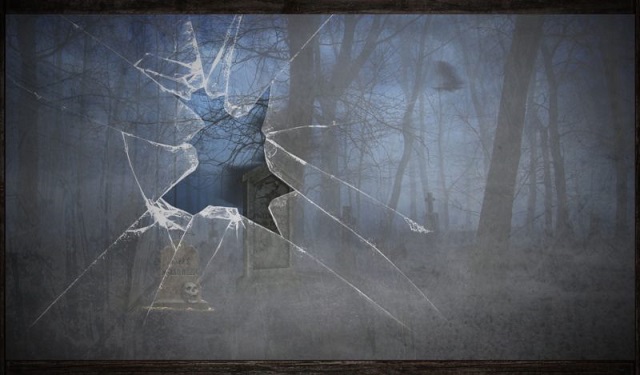
From the Brownstone Institute
BY
Ideas move from Unthinkable to Radical to Acceptable to Sensible to Popular to become Policy.
The concept of the Overton window caught on in professional culture, particularly those seeking to nudge public opinion, because it taps into a certain sense that we all know is there. There are things you can say and things you cannot say, not because there are speech controls (though there are) but because holding certain views makes you anathema and dismissable. This leads to less influence and effectiveness.
The Overton window is a way of mapping sayable opinions. The goal of advocacy is to stay within the window while moving it just ever so much. For example, if you are writing about monetary policy, you should say that the Fed should not immediately reduce rates for fear of igniting inflation. You can really think that the Fed should be abolished but saying that is inconsistent with the demands of polite society.
That’s only one example of a million.
To notice and comply with the Overton window is not the same as merely favoring incremental change over dramatic reform. There is not and should never be an issue with marginal change. That’s not what is at stake.
To be aware of the Overton window, and fit within it, means to curate your own advocacy. You should do so in a way that is designed to comply with a structure of opinion that is pre-existing as a kind of template we are all given. It means to craft a strategy specifically designed to game the system, which is said to operate according to acceptable and unacceptable opinionizing.
In every area of social, economic, and political life, we find a form of compliance with strategic considerations seemingly dictated by this Window. There is no sense in spouting off opinions that offend or trigger people because they will just dismiss you as not credible. But if you keep your eye on the Window – as if you can know it, see it, manage it – you might succeed in expanding it a bit here and there and thereby achieve your goals eventually.
The mission here is always to let considerations of strategy run alongside – perhaps even ultimately prevail in the short run – over issues of principle and truth, all in the interest of being not merely right but also effective. Everyone in the business of affecting public opinion does this, all in compliance with the perception of the existence of this Window.
Tellingly, the whole idea grows out of think tank culture, which puts a premium on effectiveness and metrics as a means of institutional funding. The concept was named for Joseph Overton, who worked at the Mackinac Center for Public Policy in Michigan. He found that it was useless in his work to advocate for positions that he could not recruit politicians to say from the legislative floor or on the campaign trail. By crafting policy ideas that fit within the prevailing media and political culture, however, he saw some successes about which he and his team could brag to the donor base.
This experience led him to a more general theory that was later codified by his colleague Joseph Lehman, and then elaborated upon by Joshua Treviño, who postulated degrees of acceptability. Ideas move from Unthinkable to Radical to Acceptable to Sensible to Popular to become Policy. A wise intellectual shepherd will manage this transition carefully from one stage to the next until victory and then take on a new issue.
The core intuition here is rather obvious. It probably achieves little in life to go around screaming some radical slogan about what all politicians should do if there is no practical means to achieve it and zero chance of it happening. But writing well-thought-out position papers with citations backed by large books by Ivy League authors and pushing for changes on the margin that keep politicians out of trouble with the media might move the Window slightly and eventually enough to make a difference.
Beyond that example, which surely does tap into some evidence in this or that case, how true is this analysis?
First, the theory of the Overton window presumes a smooth connection between public opinion and political outcomes. During most of my life, that seemed to be the case or, at least, we imagined it to be the case. Today this is gravely in question. Politicians do things daily and hourly that are opposed by their constituents – fund foreign aid and wars for example – but they do it anyway due to well-organized pressure groups that operate outside public awareness. That’s true many times over with the administrative and deep layers of the state.
In most countries, states and elites that run them operate without the consent of the governed. No one likes the surveillance and censorial state but they are growing regardless, and nothing about shifts in public opinion seem to make any difference. It’s surely true that there comes a point when state managers pull back on their schemes for fear of public backlash but when that happens or where, or when and how, wholly depends on the circumstances of time and place.
Second, the Overton window presumes there is something organic about the way the Window is shaped and moves. That is probably not entirely true either. Revelations of our own time show just how involved are major state actors in media and tech, even to the point of dictating the structure and parameters of opinions held in the public, all in the interest of controlling the culture of belief in the population.
I had read Manufacturing Consent (Noam Chomsky and Edward Herman; full text here) when it came out in 1988 and found it compelling. It was entirely believable that deep ruling class interests were more involved than we know about what we are supposed to think about foreign-policy matters and national emergencies, and, further, entirely plausible that major media outlets would reflect these views as a matter of seeking to fit in and ride the wave of change.
What I had not understood was just how far-reaching this effort to manufacture consent is in real life. What illustrates this perfectly has been media and censorship over the pandemic years in which nearly all official channels of opinion have very strictly reflected and enforced the cranky views of a tiny elite. Honestly, how many actual people in the US were behind the lockdowns policy in terms of theory and action? Probably fewer than 1,000. Probably closer to 100.
But thanks to the work of the Censorship Industrial Complex, an industry built of dozens of agencies and thousands of third-party cutouts including universities, we were led to believe that lockdowns and closures were just the way things are done. Vast amounts of the propaganda we endured was top down and wholly manufactured.
Third, the lockdown experience demonstrates that there is nothing necessarily slow and evolutionary about the movement of the Window. In February 2020, mainstream public health was warning against travel restrictions, quarantines, business closures, and the stigmatization of the sick. A mere 30 days later, all these policies became acceptable and even mandatory belief. Not even Orwell imagined such a dramatic and sudden shift was possible!
The Window didn’t just move. It dramatically shifted from one side of the room to the other, with all the top players against saying the right thing at the right time, and then finding themselves in the awkward position of having to publicly contradict what they had said only weeks earlier. The excuse was that “the science changed” but that is completely untrue and an obvious cover for what was really just a craven attempt to chase what the powerful were saying and doing.
It was the same with the vaccine, which major media voices opposed so long as Trump was president and then favored once the election was declared for Biden. Are we really supposed to believe that this massive switch came about because of some mystical window shift or does the change have a more direct explanation?
Fourth, the entire model is wildly presumptuous. It is built by intuition, not data, of course. And it presumes that we can know the parameters of its existence and manage how it is gradually manipulated over time. None of this is true. In the end, an agenda based on acting on this supposed Window involves deferring to the intuitions of some manager who decides that this or that statement or agenda is “good optics” or “bad optics,” to deploy the fashionable language of our time.
The right response to all such claims is: you don’t know that. You are only pretending to know but you don’t actually know. What your seemingly perfect discernment of strategy is really about concerns your own personal taste for the fight, for controversy, for argument, and your willingness to stand up publicly for a principle you believe will very likely run counter to elite priorities. That’s perfectly fine, but don’t mask your taste for public engagement in the garb of fake management theory.
It’s precisely for this reason that so many intellectuals and institutions stayed completely silent during lockdowns when everyone was being treated so brutally by public health. Many people knew the truth – that everyone would get this bug, most would shake it off just fine, and then it would become endemic – but were simply afraid to say it. Cite the Overton window all you want but what is really at issue is one’s willingness to exercise moral courage.
The relationship between public opinion, cultural feeling, and state policy has always been complex, opaque, and beyond the capacity of empirical methods to model. It’s for this reason that there is such a vast literature on social change.
We live in times in which most of what we thought we knew about the strategies for social and political change have been blown up. That’s simply because the normal world we knew only five years ago – or thought we knew – no longer exists. Everything is broken, including whatever imaginings we had about the existence of this Overton window.
What to do about it? I would suggest a simple answer. Forget the model, which might be completely misconstrued in any case. Just say what is true, with sincerity, without malice, without convoluted hopes of manipulating others. It’s a time for truth, which earns trust. Only that will blow the window wide open and finally demolish it forever.
-

 Alberta20 hours ago
Alberta20 hours agoRed Deer Doctor critical of Alberta’s COVID response to submit report to Danielle Smith this May
-

 Censorship Industrial Complex2 days ago
Censorship Industrial Complex2 days agoDesperate Liberals move to stop MPs from calling Trudeau ‘corrupt’
-

 Business4 hours ago
Business4 hours agoDon’t be fooled by high-speed rail
-

 COVID-192 days ago
COVID-192 days agoInquiry shows Canadian gov’t agencies have spent $10 million on social media ads for COVID jabs
-

 Business2 days ago
Business2 days agoFederal government’s ‘fudget budget’ relies on fanciful assumptions of productivity growth
-

 Health1 day ago
Health1 day agoTransgender activists are threatening the author of scathing UK report on child ‘sex changes’
-

 conflict1 day ago
conflict1 day agoCol. Douglas Macgregor torches Trump over support for bill funding wars in Ukraine and Israel
-
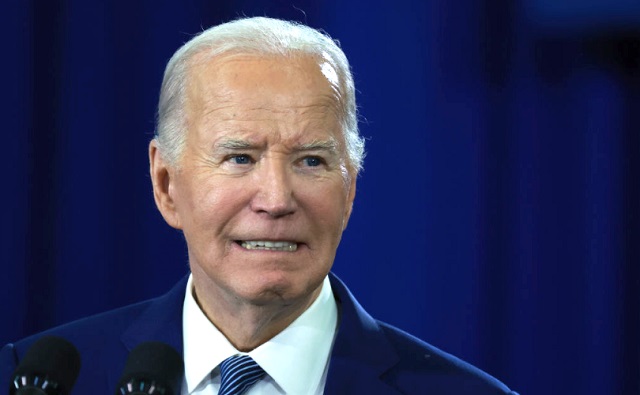
 International1 day ago
International1 day agoBiden admin expands Title IX to include ‘gender identity,’ sparking conservative backlash


